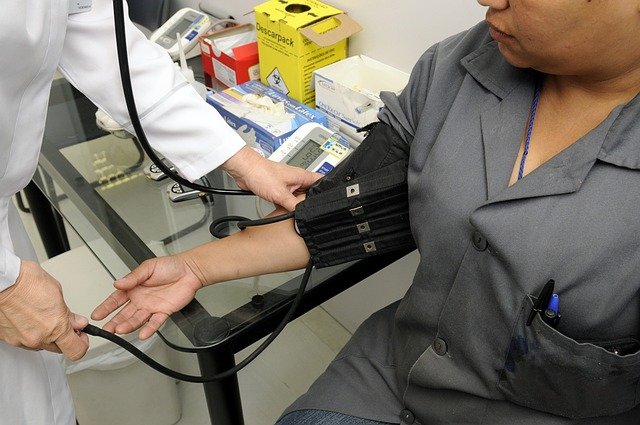Comprehensive Kidney Care: Treatments and Management
Explore practical, up-to-date information on managing kidney disease, from medication strategies and lifestyle adjustments to dialysis and transplantation. Learn how individualized medical care, diet, and regular monitoring preserve kidney function and improve quality of life. Keywords: kidney disease treatment, kidney health, dialysis, transplant, lifestyle changes.

Kidney disease management requires a tailored combination of medical treatments, lifestyle adjustments, and ongoing monitoring. Because causes and severity vary widely—from early-stage chronic kidney disease to end-stage renal failure—care plans are individualized to slow progression, treat complications, and maintain well-being. Below is a clear, practical guide to the main treatment pathways and long-term strategies patients and caregivers should understand.
Medical treatments and medications
Medications are often the first line of defense in protecting kidney function and addressing problems that arise as the disease progresses. Key approaches include:
- Blood pressure control: Keeping blood pressure within target ranges is crucial. Angiotensin-converting enzyme (ACE) inhibitors or angiotensin receptor blockers (ARBs) are commonly used because they can reduce proteinuria and slow renal decline in many patients.
- Diuretics: These help manage fluid retention and blood pressure, especially in people with reduced kidney filtration.
- Glycemic control for diabetes: For people whose kidney disease is related to diabetes, tight blood sugar management with oral agents or insulin reduces kidney stress and long-term decline.
- Treatment of complications: Anemia, mineral and bone disorders, and electrolyte imbalances frequently accompany kidney dysfunction. Specific therapies — such as erythropoiesis-stimulating agents for anemia or phosphate binders for high phosphorus — target these issues directly.
Regular laboratory monitoring (creatinine, estimated glomerular filtration rate, electrolytes, hemoglobin, and markers of bone metabolism) lets clinicians adjust medications and dosages safely. Medication plans are dynamic and must be reviewed periodically to balance efficacy and side effects.
Diet, exercise, and daily habits
Lifestyle choices have a major impact on kidney health and can slow disease progression. Practical recommendations typically include:
- Dietary adjustments: Many clinicians advise moderating sodium intake to control blood pressure and fluid balance. Depending on the stage and cause of kidney disease, protein intake may be adjusted to lessen kidney workload, and phosphorus and potassium intake may be limited to prevent mineral and electrolyte disturbances. A renal dietitian can provide individualized meal plans.
- Physical activity: Regular, moderate exercise supports cardiovascular health, aids blood pressure control, and helps with weight management.
- Tobacco and alcohol: Stopping smoking and limiting alcohol consumption reduce cardiovascular risk and may slow renal decline.
- Weight and cardiovascular risk management: Addressing obesity, lipid abnormalities, and other cardiovascular risk factors helps protect both heart and kidney health.
Working with a multidisciplinary team — physicians, dietitians, nurses, and pharmacists — helps ensure that lifestyle interventions complement medical treatment safely.
Advanced renal replacement therapies
When kidney function falls to the point where the body can no longer maintain fluid, electrolyte, and waste balance, renal replacement therapy becomes necessary. The two main options are dialysis and kidney transplantation.
| Treatment Type | What it Does | Typical Timeframe |
|---|---|---|
| Hemodialysis (Dialysis) | Filters blood via a machine to remove waste and excess fluid | Usually 3–4 hours per session, about 3 times per week |
| Kidney Transplant | Replaces a failing kidney with a donor organ to restore kidney function | Single operative procedure with lifelong follow-up and immunosuppression |
Prices, rates, or cost estimates mentioned in this article are based on the latest available information but may change over time. Independent research is advised before making financial decisions.
Choosing between dialysis and transplantation depends on medical suitability, availability of donor organs, comorbid conditions, and patient preferences. Transplantation often offers better long-term quality of life, but it requires lifelong medications to prevent rejection and careful follow-up. Dialysis can be lifesaving and is available to more patients, though it places ongoing time and lifestyle demands on recipients.
Prevention, monitoring, and long-term care
Early detection and consistent management are the most effective ways to slow kidney disease progression. Core components of prevention and ongoing care include:
- Routine check-ups: Regular visits to a primary care physician or nephrologist to track kidney function and associated risk factors.
- Home monitoring: Checking blood pressure and, for diabetic patients, blood glucose at home supports timely adjustments.
- Vaccinations and infection prevention: People with kidney disease are more vulnerable to certain infections; staying up to date with recommended immunizations helps reduce risk.
- Medication reconciliation: Reviewing all prescribed and over-the-counter medications is essential, since many drugs require dose changes or avoidance when kidney function declines.
- Advance care planning: Discussing treatment goals and future care preferences with providers and family helps align therapy choices with personal values.
Working closely with your healthcare team
A successful management plan is collaborative. Patients who communicate openly about symptoms, side effects, diet, and daily challenges enable clinicians to tailor therapies more effectively. Education about warning signs of worsening kidney function (e.g., swelling, shortness of breath, decreased urine output, sudden weight gain) can prompt early intervention.
Multidisciplinary clinics that include nephrologists, dietitians, social workers, and transplant coordinators provide comprehensive support across medical, nutritional, and psychosocial needs.
Consistent follow-up, adherence to prescribed therapies, and lifestyle changes can significantly improve outcomes. Early intervention when kidney impairment is detected maximizes the chance of slowing progression and preserving quality of life.
This article is for informational purposes only and should not be considered medical advice. Please consult a qualified healthcare professional for personalized guidance and treatment.




